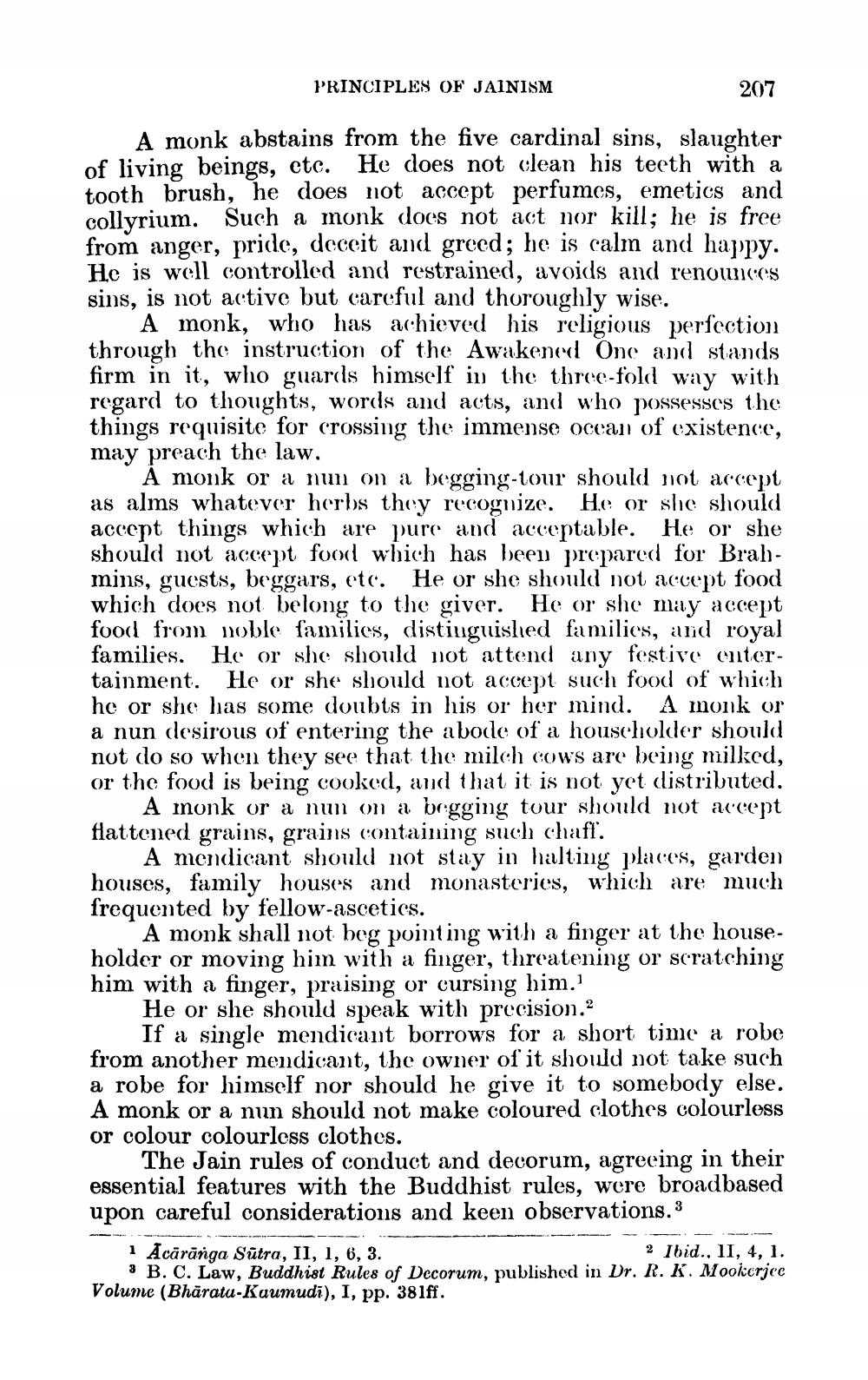________________
PRINCIPLES OF JAINISM
207
A monk abstains from the five cardinal sins, slaughter of living beings, etc. He does not clean his teeth with a tooth brush, he does not accept perfumes, emetics and collyrium. Such a monk does not act nor kill; he is free from anger, pride, deceit and greed; he is calm and happy. He is well controlled and restrained, avoids and renounces sins, is not active but careful and thoroughly wise.
A monk, who has achieved his religious perfection through the instruction of the Awakened One and stands firm in it, who guards himself in the three-fold way with regard to thoughts, words and acts, and who possesses the things requisite for crossing the immense ocean of existence, may preach the law.
A monk or a nun on a begging-tour should not accept as alms whatever herbs they recognize. He or she should accept things which are pure and acceptable. He or she should not accept food which has been prepared for Brahmins, guests, beggars, etc. He or she should not accept food which does not belong to the giver. He or she may accept food from noble families, distinguished families, and royal families. He or she should not attend any festive entertainment. He or she should not accept such food of which he or she has some doubts in his or her mind. A monk or a nun desirous of entering the abode of a householder should
so when they see that the milch cows are being milked, or the food is being cooked, and that it is not yet distributed.
A monk or a mun on a begging tour should not accept flattened grains, grains containing such chafi.
A mendicant should not stay in halting places, garden houses, family houses and monasteries, which are much frequented by fellow-ascetics.
A monk shall not beg pointing with a finger at the householder or moving him with a finger, threatening or scratching him with a finger, praising or cursing him.
He or she should speak with precision.
If a single mendicant borrows for a short time a robe from another mendicant, the owner of it should not take such a robe for himself nor should he give it to somebody else. A monk or a nun should not make coloured clothes colourless or colour colourless clothes.
The Jain rules of conduct and decorum, agreeing in their essential features with the Buddhist rules, were broadbased upon careful considerations and keen observations. 3
.
1 Acārānga Sutra, II, 1, 6, 3.
2 Ibid., II, 4, 1. 3 B. C. Law, Buddhist Rules of Decorum, published in Dr. R. K. Mookerjec Volume (Bhāratu-Kaumudi), I, pp. 381ff.




